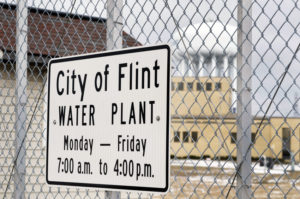
Flint’s Water Crisis: An Update
The saga of the water crisis in Flint, Michigan, which began to unfold in 2014 when water quality testing revealed unacceptably high levels of lead in the city’s water, continues as criminal charges are filed against a number of state and local officials involved in the matter.
As CBS News reports, “Michigan officials on Thursday [Jan. 14] announced the outcome of the criminal investigation into the Flint water crisis. Former Governor Rick Snyder is facing two counts of willful neglect of duty for ‘failing to protect the health and safety’ of the city’s residents.”
If convicted, CBS says the former governor could spend up to a year in jail. He also faces a potential fine of $1,000, which doesn’t seem like much when you think about the damage done to the people of Flint.
Charges have also been filed against eight other people involved in the scandal, many of whom as CBS also reported worked in Snyder’s administration, including:
- Jarrod Agen, the former director of communications and Snyder’s chief of staff, who has been charged with one count of perjury.
- Richard Baird, a senior advisor to Snyder, has been charged with a single count of misconduct in office.
- Nancy Peeler, who managed the state’s Early Childhood Health Section, faces two counts of misconduct in office and one count of willful neglect of duty.
- Eden Wells, as the former state medical executive, faces more serious charges. In addition to two counts of misconduct in office, one count of willful neglect of duty, the charges include nine counts of involuntary manslaughter.
- The state’s former health director, Nicolas Lyon, has also been charged with nine counts of involuntary manslaughter in addition to one count of willful neglect of duty.
Charges were also filed against several public servants in Flint, including Gerald Ambrose, the city’s former emergency manager: Howard Croft, who was the director of the city’s public works department at the time of the scandal, and Darnell Earley, another former emergency manager.
Testing for lead is an important part of water quality testing, because of the harmful effects associated with lead contamination. It is a tragedy that, in the case of Flint’s water, water quality testing which clearly showed the presence of lead was ignored.







